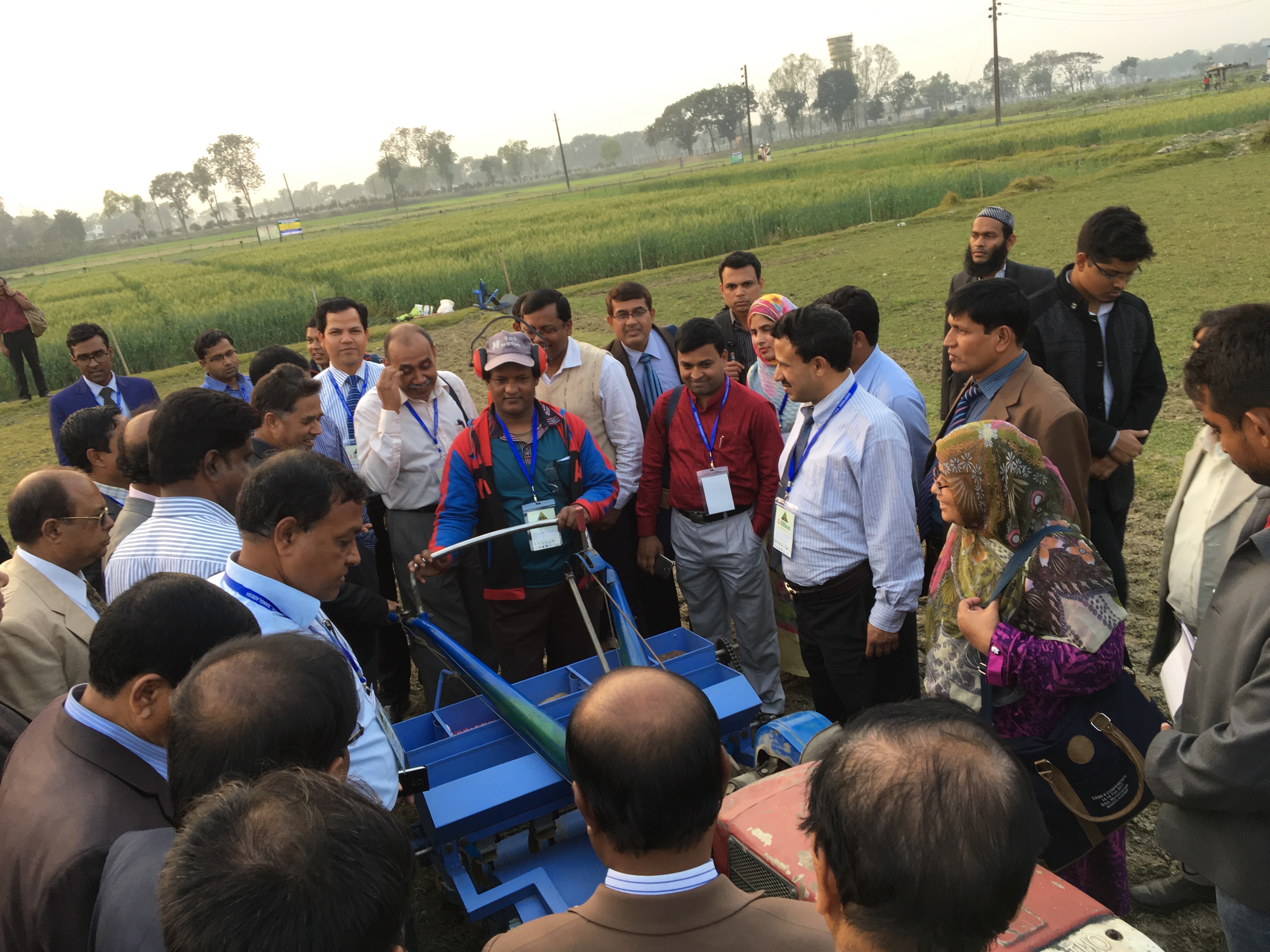WA agricultural expertise aids Bangladeshi food security

WA agricultural expertise aids Bangladeshi food security
Western Australian innovation has helped to transform agricultural production in Bangladesh through an international capacity building project to aid the adoption of more efficient, effective and sustainable farming systems.
The long-running Conservation Agriculture (CA) project, led by Murdoch University with support from the Department of Agriculture and Food, Western Australia and funds from the Australian Centre for International Agricultural Research (ACIAR), will come to an end this month.
The project worked closely with the Bangladesh Agricultural University, government and non-government agencies and the private sector to replace traditional multiple cultivation practices with CA minimum tillage systems.
As a result, Bangladeshi farmers, who grow two to three rice and/or grain crops a year, have reduced production costs and water use, while increasing yields.
Project leader, Murdoch University Professor Richard Bell, said the adoption of CA farming systems had enhanced the capabilities of Bangladeshi farmers to meet the challenges of feeding an increasing population.
“With a population of 164 million people, which is expected to reach 205 million by 2050, it is essential for Bangladesh to improve overall land use sustainability, while decreasing production costs to increase farm profitability,” Professor Bell said.
“The adoption of CA principles has improved soil fertility and soil moisture use, while more Bangladeshi farmers are now using herbicides effectively to control weeds.
“Together, these measures have reduced the turnaround time between crops, as well as greenhouse gas emissions, while boosting crop yields up to 20 per cent.
“The integration of mechanised planting has reduced fuel costs by 65 per cent and labour costs by 30 per cent.”
The up-take of a range of minimum tillage planters to operate on the back of the two-wheel tractors has been a key achievement of the project.
The project also facilitated the formation of a network of farmers, service providers, extension officers, non-government organisations and machinery manufacturers across the country to accelerate the adoption of farm machinery and CA practices.
The Department of Agriculture and Food provided agronomic advice to the project on the ramifications of changing from a multiple to minimum tillage farming system.
Department principal research officer Abul Hashem and his colleague Ross Brennan contributed to the development of a CA agronomic package for the Bangladeshi farmers, which incorporates information on weed and plant nutrition management.
“While a CA system is more beneficial, it is not without some management challenges,” Dr Hashem said.
“Minimum tillage requires good stubble, weed and herbicide management practices to ensure adequate soil moisture and nutrients for the crop, and to guard against the risk of weeds, pests and disease.
“WA has been a world leader in the adoption of minimum tillage and we have been able to employ the lessons we learned to assist Bangladeshi farmers to manage their crops.”
Part of the project research was conducted at the Western Australian No-Tillage Farmers Association’s Cunderdin site and the department’s Merredin Research Facility.
This research also assisted WA farmers to address local issues with Group A herbicide-resistant annual ryegrass and soil nutrition management.
The project collaborators also implemented an education program on safe use and handling of herbicides for Bangladeshi scientists and growers.
Seven doctorate and 17 masters students from Murdoch University and Bangladesh Agricultural University have been involved in the project in weed management, soil nutrition management, spray technology and greenhouse gas emissions.
The Bangladeshi scientists will lead the weed and soil management research in their country in the near future, to improve the farm productivity and profitability.
“This ACIAR project is a wonderful example of the power of scientific collaboration to generate change that results in an improvement in the quality of life of a nation’s people,” Professor Bell said.
“It has also created an opportunity to further examine CA and the benefits and challenges it presents to farmers in both Bangladesh and Australia, while providing research opportunities for future professionals.”



